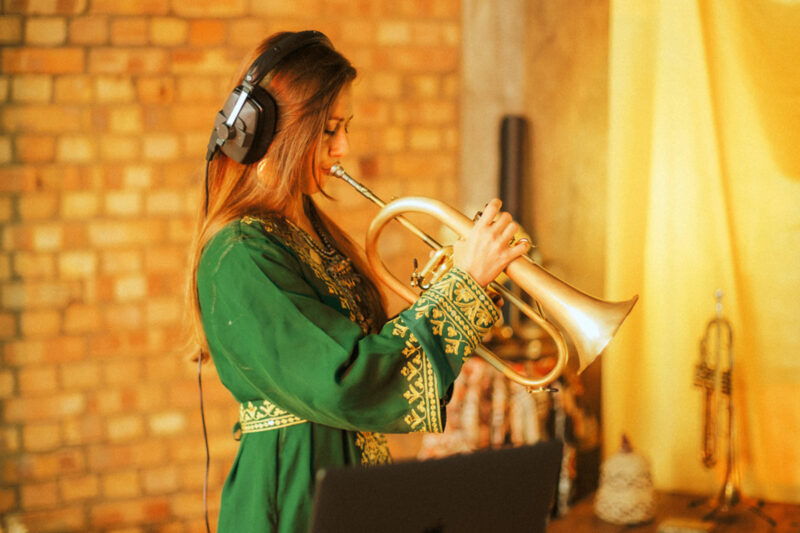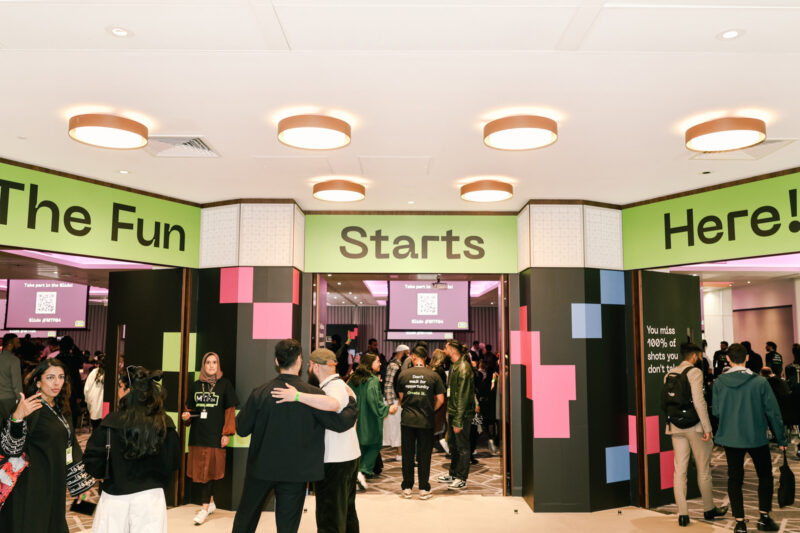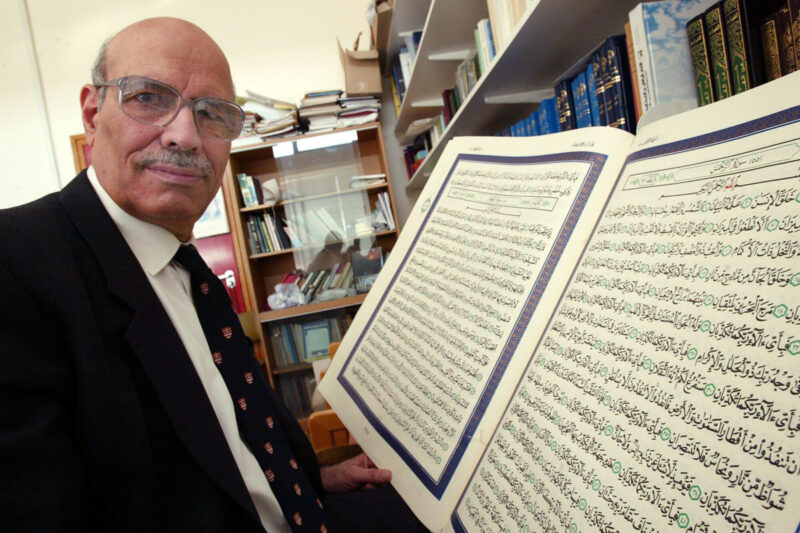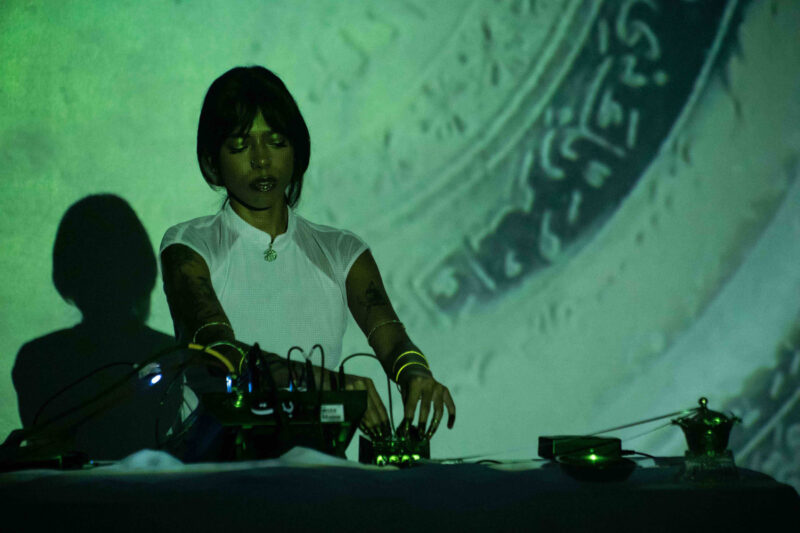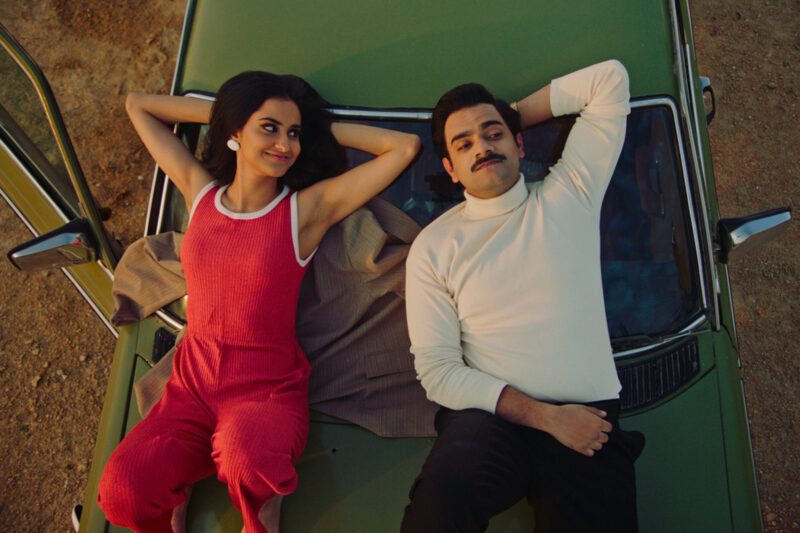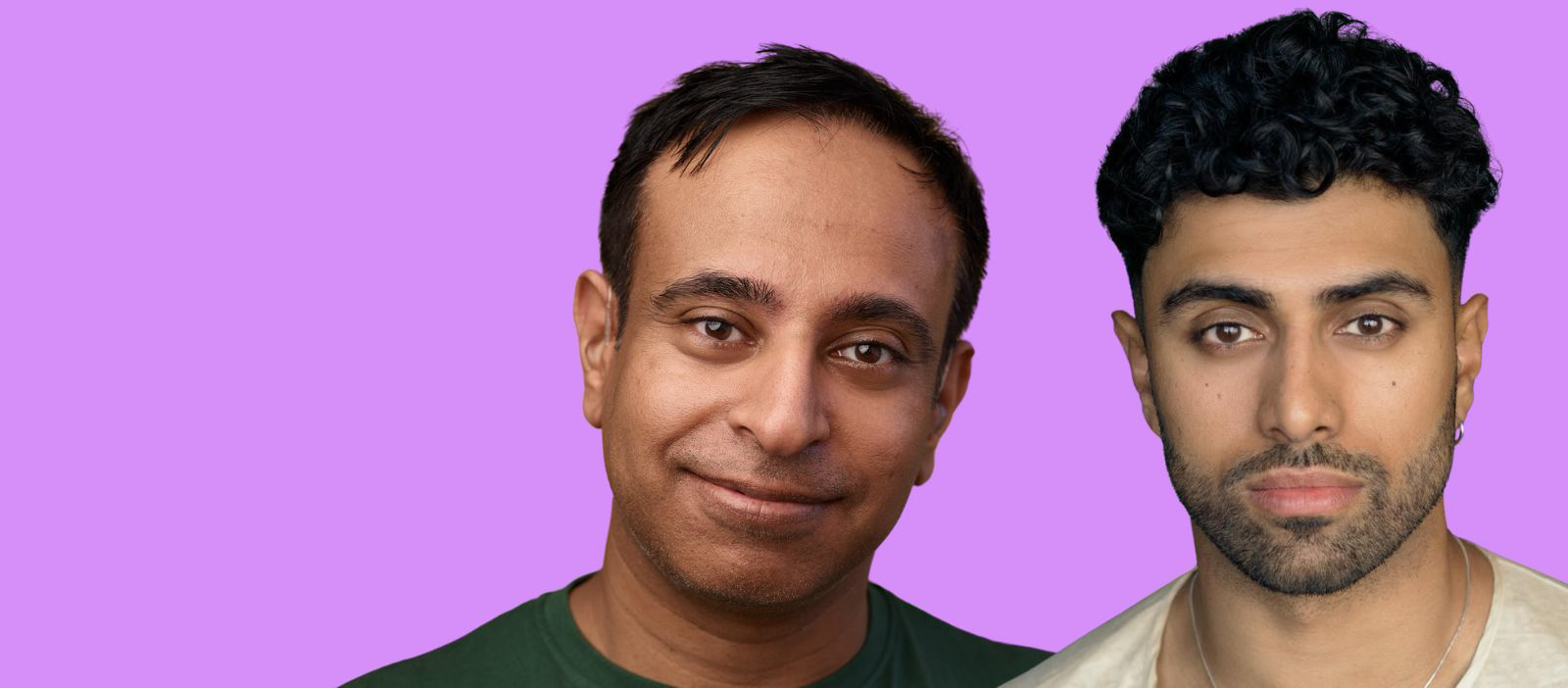
Shahid Iqbal Khan, Azan Ahmed Q&A: ‘10 Nights humanises Muslim men with care and wit’
Photography courtesy of Shahid Iqbal Khan (left) and Azan Ahmed (right)
The playwright and actor on what it means to bring Islam to the theatre
–
Shahid Iqbal Khan’s play 10 Nights — a story about a young Muslim man sitting Itikaf — is touring London, Bristol and Leicester, with Azan Ahmed playing all six roles.
The 42-year-old playwright was nominated for an Olivier Award in 2022, after 10 Nights was first staged at the Bush Theatre in London the year before.
The comedy drama follows Yasser, reluctantly observing Itikaf for the first time by sleeping and fasting in a mosque for the last ten days of Ramadan and devoting himself to worship and self-reflection.
Through Yasser’s personal journey — reckoning with the grief and guilt he feels over the death of his close friend, Aftab — the play challenges multiple stigmas within Muslim communities around substance abuse, worship and relationships.
Khan, from Bury in Greater Manchester, was awarded the 2023 Peter Shaffer Commission from the National Theatre, and is also a writer on the Genesis Almeida New Playwrights, Big Plays programme for 2023-2025.
Ahmed, a screen and theatre actor from Kilburn, London, is best known for the role of sergeant Eddie Suleman in ITV’s Van der Valk. In 2023, he also appeared in The Tempest at Shakespeare’s Globe and The Father and the Assassin at the National Theatre.
The 26-year-old is also the founder of Deen & Dunya, a poetry night that celebrates Muslim voices, and has hosted the event at venues including Shakespeare’s Globe, Stratford East, the Royal Court Theatre and the Bush Theatre.
Here, Khan and Ahmed share what it was like to work on 10 Nights, their favourite plays, and bringing mosques to the stage.
This interview has been edited for length and clarity.
Were you worried about how a play about Itikaf, with recitations from the Qur’an in it, would be received?
Shahid: I remember a literary manager telling me that I should write what I want. They told me not to worry about what the theatres would commission, or if the audiences would come. My ambition was to try and tell the story authentically; it had to be honest and true. And so in that setting of a mosque, of course you will see a character pray and you will hear the Qur’an. How can you have a play that is about Itikaf and not include that?
What elements of this play do you relate to?
Shahid: Playwrights rarely do anything completely biographical, but the play was somewhat inspired by my own Itikaf in 2010.
Like the play’s protagonist Yasser, I observed Itikaf behind a curtain, cordoned off from the mosque. I also had someone next to me guiding me through things. He showed me how to do wudhu properly, and I remember asking him about when to do sujud while reading the Qur’an.
Azan: There is so much to relate to. There is this big question that is central to the play, which is ‘are you a good Muslim, or are you a bad Muslim?’ and ‘who are we to judge?’ That’s something a lot of young Muslims think about, but it rarely gets talked about.
There is a scene where Yasser is shy and scared of reading the Qur’an out loud. I didn’t grow up going to madrasa — my wonderful nani taught me my knowledge of Islam — but that meant that if I had to recite out loud, I felt the same way.
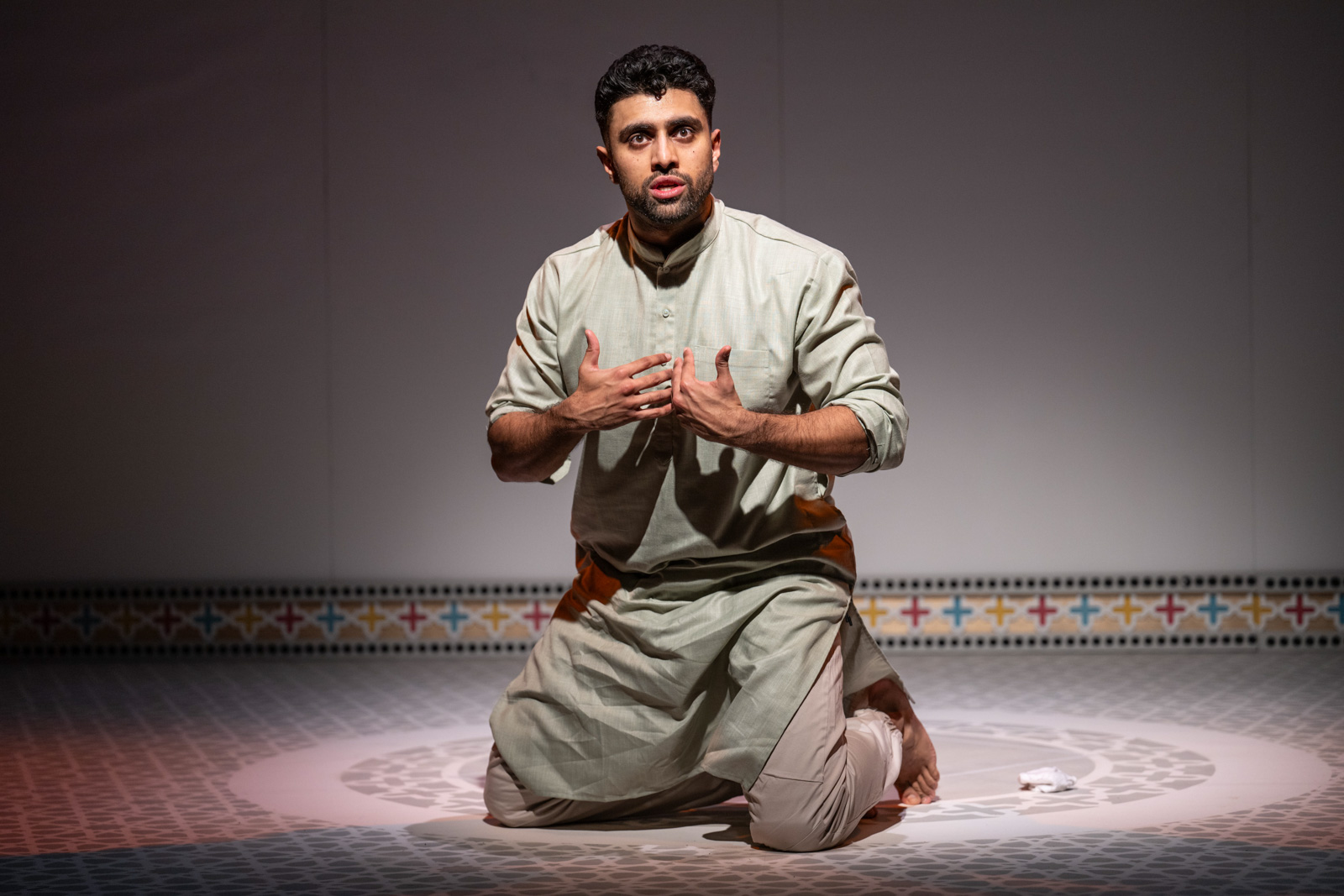
What would you like people to take away from the play?
Shahid: The wonderful thing about this play is that it presents nuances of how Muslims absorb beliefs, and how their beliefs manifest in their lives. If this was a big show, or a TV drama, you might have just one token Muslim. But in this you have different Muslims characters with various perspectives.
It’s also fascinating for non-Muslims, as they get insight into something they probably haven’t heard of before. They also learn a bit about Islam, like the 99 names of Allah.
Azan: I want Muslims to feel safe in the theatre, and I have never read a script that humanises Muslim men with such care and wit.
I’d also like Muslims to come away knowing that they are never alone. The play highlights the power of community, but it also emphasises that even when you feel alone, God is always with you, and we see that in Yasser’s journey.
Azan, you play six different characters in this play. What is that like, and which is your favourite part to play?
Azan: We have spent a lot of time thinking about who these men are outside of the mosque, and we’ve tried to make sure we don’t make them into caricatures. My favourite is Hakim uncle, who tells Yasser off for wearing a tracksuit to the mosque. He’s a lot of fun to play.
This play is like a physical, emotional and spiritual workout for me. Yasser’s journey does hit you hard — it’s almost like a shedding of the skin, and he is stripped of the mask he puts up for the world. It’s a beautiful experience, but it’s emotionally exhausting.
What’s next for you both?
Shahid: In 2025 we hope to bring 10 Nights to the Midlands, northwest England and Scotland.
I also have upcoming commissions with the Royal Court Theatre, Almeida Theatre and Paines Plough in London. I’ve written plays of different genres — they range from political thrillers to a comedy set in a cash and carry, to a spiritual play set in the world of djinn, called Djinnity.
Azan: I’m going to rest. I’m so lucky and grateful that the past two years have been non-stop acting and writing, which has been the biggest blessing. Ramadan starts very soon after we finish the tour, so i’m going to embrace that time.
Can you name one play that everyone should go and see or read?
Shahid: Bullring Techno Makeout Jamz. It’s about a guy in Birmingham on the dating scene. I loved how much I learned, like how Birmingham is said to have more miles of canal than Venice. Plus, I loved that you leave the show feeling really good and uplifted.
Azan: For Black Boys Who Have Considered Suicide When the Hue Gets Too Heavy. It is a gorgeous story about men of colour and their vulnerabilities. It is poetic, and the movement and joy that comes from it is fantastic. If you like 10 Nights, you will love this.
10 Nights is touring London, Bristol and Leicester until 2 March.
Deen & Dunya’s Ramadan special is on 3 April at the London Library.
 Newsletter
Newsletter

